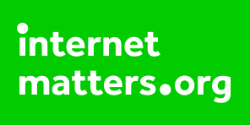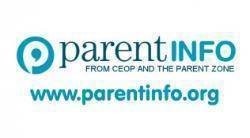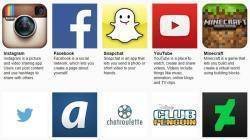E-Safety - Online & Digital Safeguarding
.jpg?width=640&height=480&scale=LIMIT_MAXSIZE)
The Internet is now an integral part of our lives and an excellent source of information, entertainment and communication opportunities for us all. However, it is essential that we teach our children how to make the best use of this resource whilst knowing about the risks. Children need to be taught how to keep themselves safe, as well as understanding their responsibility to others, whilst using the internet. It is essential that as teachers, parents and carers we maintain an involvement in young children's internet use to guide, advise and when necessary set boundaries.
We hope that the following links will be of use to parents in raising awareness of the internet, its risks as well as helping to keep our children safe online. Please note that these sites are suggestions not recommendations.
Our e-safety policy is available in the Reports and Policies Section of this site.
The Jigsaw programme we use for our PSHE lessons had incorporated the 'Education for a Connected World'. This is a framework to equip children and young people for digital life. It was written by the UK Council for Internet Safety and enables the development of teaching and learning as well as guidance to support children and young people to live knowledgeably, responsibly and safely in a digital world. It focuses specifically on eight different aspects of online education. Jigsaw-online-relationships-skills-progression-3-11-1.pdf (stnicholasprimaryschool.org.uk)

Online safety day
The children enjoyed debating online scenarios, and how to deal with online bullying, online stranger danger and safety whilst online. They also identified the age restrictions for social media platforms and online gaming.
The internet is a great place for kids to learn, play, create and connect, but technology is advancing quickly and parents may find it challenging to keep up.
We want everyone to safely enjoy the web, and so fiind a range of resources on the llink below to help you regularly discuss online safety with your children. This empowers families to confidently explore the digital world together.
Check out our online safety resources at Internet Safety for Kids | O2
E-Safety News
Videos to help you - just click on the links
National Online Safety Guides
Boost Online Safety Guides
BOOST Parents: An Introduction to Online Safety (Part 1)
BOOST Parents: An Introduction to Online Safety (Part 2)
BOOST Parents: An Introduction to Online Safety (Part 3)
BOOST Parents: An Introduction to Online Safety (Part 4)
Links To Help You Support Your Children Online
12 Rules for Responsible ICT Use- Pupil agreement
12 Rules for Responsible ICT Use
Keeping safe: stop, think, before you click!
These rules will keep everyone safe and help us to be fair to others.
- I will only use ICT in school for school purposes.
- I will not look at other people's files without their permission.
- I will ask permission from a member of staff before using the Internet and will not try to access Internet sites I know to be banned by the school.
- I will only e-mail people my teacher has approved.
- The messages I send, or information I upload, will always be polite and sensible.
- I will not open an attachment, or download a file, unless I have permission or I know and trust the person who has sent it.
- I will not send to children or adults anything that could be considered unpleasant or nasty.
- I will not give out personal information – such as my name, address, phone number, or e-mail – or send photographs or videos to people I don't know and trust.
- I will not arrange to meet someone I have only been in touch with online, unless I have my parent's or carer's permission and they can be present.
- I will keep all my login and password details private.
- If I see anything I am unhappy with or I receive a message I do not like, I will not respond to it but I will tell a teacher/ responsible adult immediately.
- I know that my use of IT can be checked and that my parent/ carer contacted if a member of school staff is concerned about my E- Safety.




